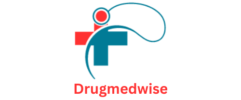Anxiety disorders affect millions of people worldwide, leading to debilitating symptoms that impact daily life. Fortunately, several effective medications are available to help manage anxiety and improve quality of life. In this article, we’ll explore the most common anti-anxiety medications prescribed by healthcare professionals.
Table of Contents
ToggleUnderstanding Anxiety Medications:
Anti-anxiety medications, also known as anxiolytics, are a class of drugs used to alleviate symptoms of anxiety disorders, including generalized anxiety disorder (GAD), panic disorder, social anxiety disorder (SAD), and others. These medications work by targeting neurotransmitters in the brain to reduce feelings of fear, worry, and tension.
Most Common Anti-Anxiety Medications:
1.Benzodiazepines:
Benzodiazepines are among the most commonly prescribed medications for anxiety due to their fast-acting nature. They work by enhancing the effects of gamma-aminobutyric acid (GABA), a neurotransmitter that inhibits brain activity, leading to a calming effect. Common benzodiazepines include:
- Xanax (Alprazolam)
- Ativan (Lorazepam)
- Klonopin (Clonazepam)
- Valium (Diazepam)
2.Selective Serotonin Reuptake Inhibitors (SSRIs):
SSRIs are a class of antidepressants commonly used to treat anxiety disorders. They work by increasing serotonin levels in the brain, which can improve mood and reduce anxiety symptoms over time. Popular SSRIs prescribed for anxiety include:
- Prozac (Fluoxetine)
- Zoloft (Sertraline)
- Lexapro (Escitalopram)
- Paxil (Paroxetine)
3.Serotonin-Norepinephrine Reuptake Inhibitors (SNRIs):
SNRIs are another class of antidepressants that may be prescribed for anxiety disorders. They work by increasing levels of serotonin and norepinephrine in the brain, which can help regulate mood and alleviate anxiety symptoms. Common SNRIs include:
- Effexor (Venlafaxine)
- Cymbalta (Duloxetine)
- Pristiq (Desvenlafaxine)
4.Beta-Blockers:
Beta-blockers are medications primarily used to treat high blood pressure and certain heart conditions. However, they may also be prescribed off-label to manage symptoms of performance anxiety or situational anxiety by blocking the effects of adrenaline. Examples of beta-blockers include:
- Inderal (Propranolol)
- Tenormin (Atenolol)
- Lopressor (Metoprolol)
Top 20 Anti-Anxiety Prescriptions Dispensed in 2024
| Rank | Medication | Explore |
|---|---|---|
| 1 | Xanax (Alprazolam) | Explore |
| 2 | Ativan (Lorazepam) | Explore |
| 3 | Zoloft (Sertraline) | Explore |
| 4 | Prozac (Fluoxetine) | Explore |
| 5 | Klonopin (Clonazepam) | Explore |
| 6 | Lexapro (Escitalopram) | Explore |
| 7 | Valium (Diazepam) | Explore |
| 8 | Effexor (Venlafaxine) | Explore |
| 9 | Cymbalta (Duloxetine) | Explore |
| 10 | Paxil (Paroxetine) | Explore |
| 11 | Pristiq (Desvenlafaxine) | Explore |
| 12 | Inderal (Propranolol) | Explore |
| 13 | Tenormin (Atenolol) | Explore |
| 14 | Lopressor (Metoprolol) | Explore |
| 15 | Buspar (Buspirone) | Explore |
| 16 | Vistaril (Hydroxyzine) | Explore |
| 17 | BuSpar (Buspirone) | Explore |
| 18 | Pexeva (Paroxetine) | Explore |
| 19 | Serax (Oxazepam) | Explore |
| 20 | Tranxene (Clorazepate) | Explore |
Conclusion:
While medications can be an effective tool in managing anxiety disorders, it’s essential to work closely with a healthcare professional to determine the most suitable treatment plan for your individual needs. If you’re experiencing symptoms of anxiety, consult your doctor to explore treatment options and find relief.
Remember, medication should be used in conjunction with therapy, lifestyle changes, and other supportive measures to achieve the best outcomes in managing anxiety.



